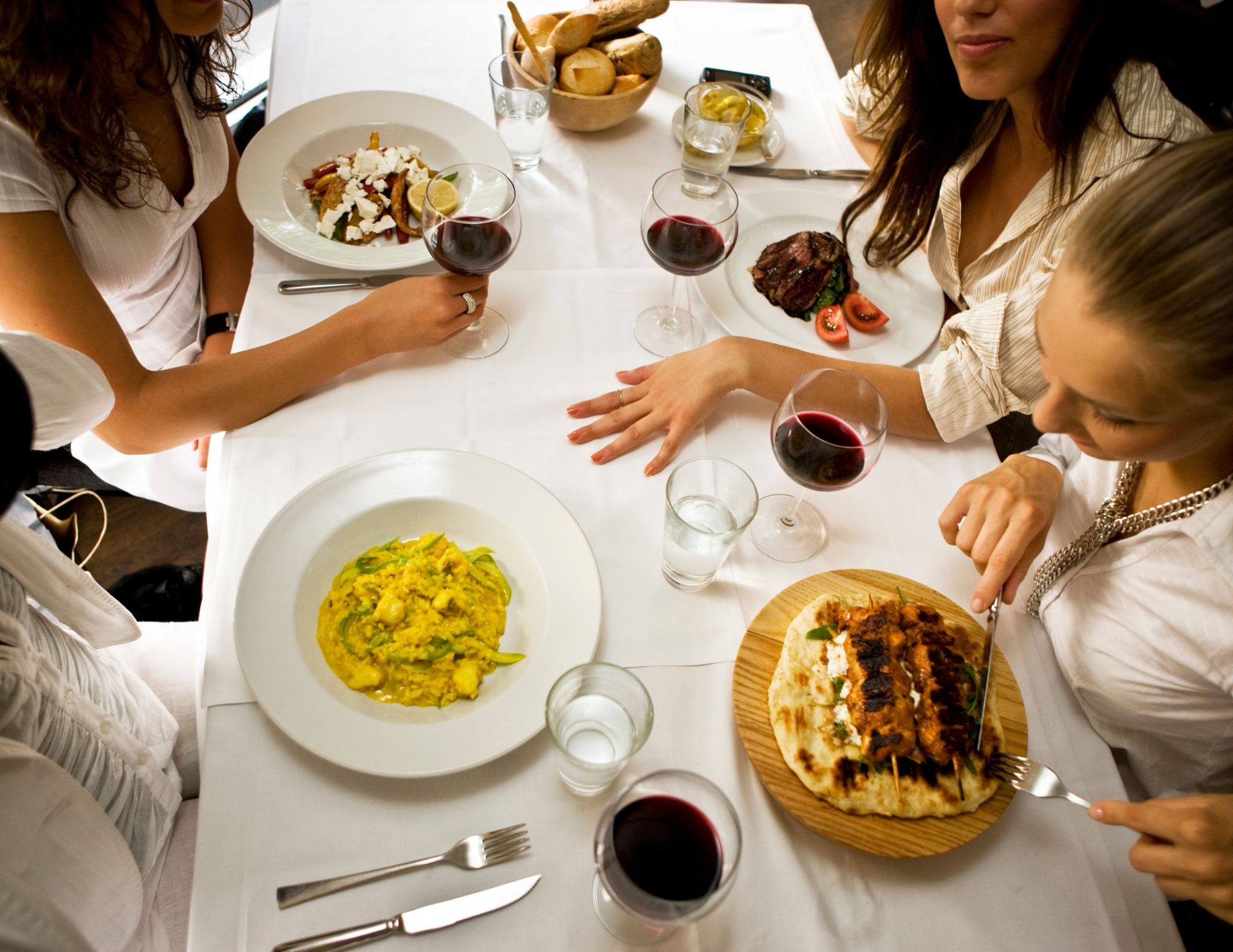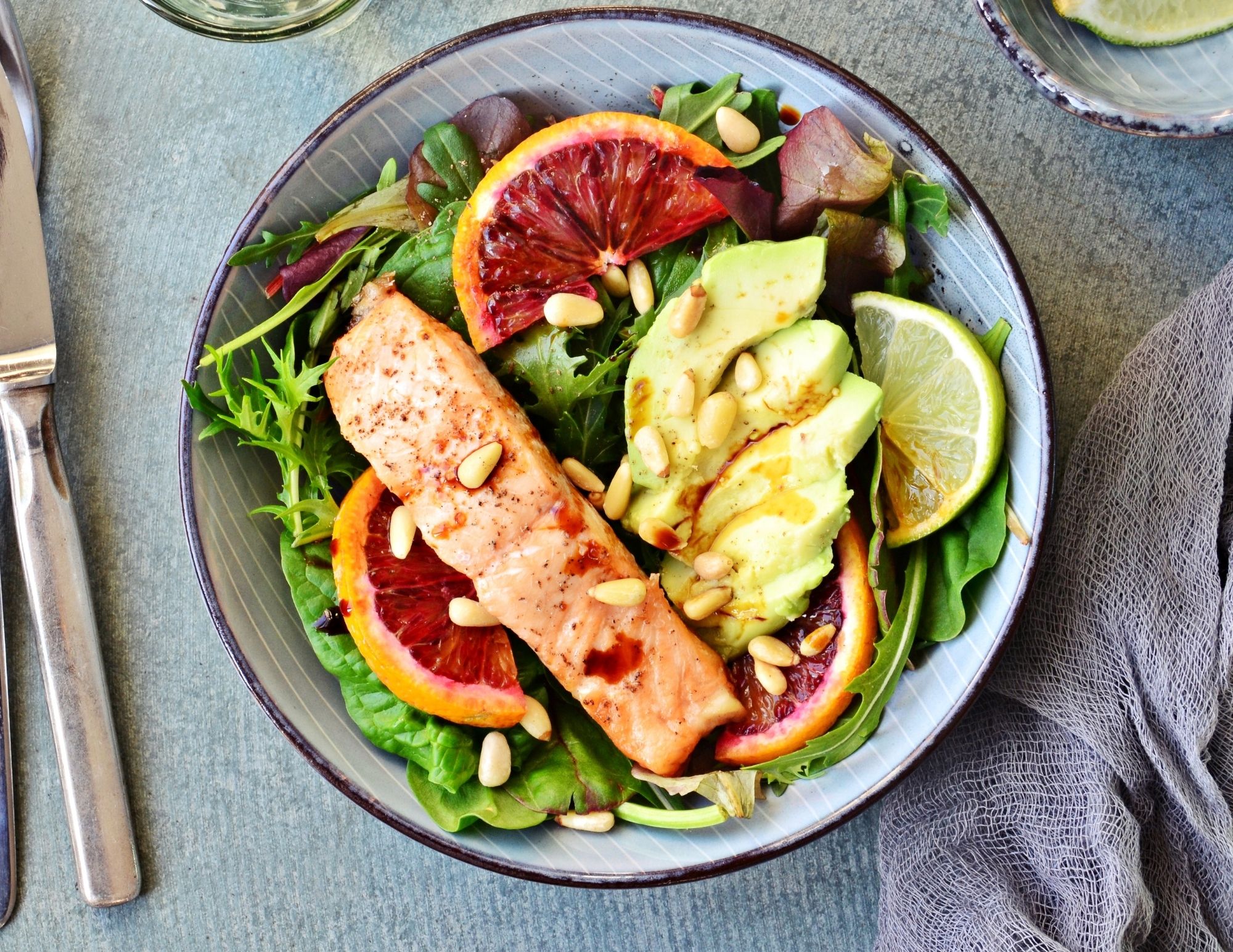
Summer has arrived and for some of us so has the anxiety of wearing our summer wardrobes. I’ve spoken to so many clients in the past few months and all of them asked about Mindfulness and eating.
I typically stay away from any “diet” talk but I realize that we need to reframe the way we think about food in order to abolish that word once and for all.
Wouldn’t it feel nice to never diet again? I’m not a dietician, nor do I have any secrets to a lasting weight loss program but I can provide some tools to help you get there.

Food is something we all can relate to and bridges the gap between cultures bringing us together in unity as humans. For centuries food has been used in celebration, to bring families and friends together and has been offered as a peace offering in ancient times.
It seems like it would be rather simple but somewhere along the way of advancements in civilization we forgot about the basics of food and how it is meant to fulfill our lives and sustain us. We have turned a basic human need into a carnival ride of disaster.

Growing up in the 70’s and 80’s, or what I call “the era of Captain Crunch and Pop Tarts,” didn’t exactly help me get started on the right foot.
I often joke that the only fruit I ate was in a pop tart or cookie. I’ll start by saying that my parents did a great job providing for our family and we didn’t have loads of sugary snacks in the house like a lot of my friends, but I still grew up with a few issues around food just like everyone else. I still fight the urge to eat ice cream every night which is something we did in our house quite often.
Our eating habits and attitudes about food are shaped early on in life and those same habits spill over into our adult years.
How many of you can relate to being made to eat EVERYTHING on your plate?!
For some of us this created an issue of portion control. We lost the innate ability to eat until we are full and were forced to eat what might have been an unnatural amount or even selection of what we really craved. Our bodies are so sophisticated and if we’re tuned in will guide us to the foods we need most.

Before I go on I’ll preface by saying that I am not pushing a vegetarian diet but want to provide an example of a food habit formed in my youth.
As a child I never liked meat but like most people, I was made to eat everything on my plate. My parents by all accounts thought they were doing the right thing. They provided what they considered to be healthy, well rounded meals consisting of one meat, one vegetable and a starch.
It wasn’t until I moved to Arizona for college that I began to make better choices and eat what I was intuitively drawn to. I became a vegetarian almost immediately but over the years bounced back and forth mostly out of habit. I had come to love eating meat by the time I hit college and a cheeseburger was for sure at the top of my list. With parents that grew up 20 miles from Philadelphia, cheesesteaks and scrapple became another food group. I’m not saying everyone needs to be a vegetarian but a good balance is always a good thing.

Food has always been a way to celebrate, gather and share but it also became something we could manipulate and use as a tool for self soothing, self sabotage or control.
The most precious commodity next to water and a basic human need for survival has turned into one of the biggest problems in today’s society. Heart disease, diabetes, high blood pressure and other health issues have all spiked in recent years. All of these things can easily be regulated and even reversed in some cases simply by making better daily choices on what and how much we consume.
So how do we do this? I realize I make it sound simple to just go out and make better choices. I realize it’s more challenging for some of us to do without help so I’ve pulled together some tips to guide you on a journey to mindful eating.
To begin your mindful eating journey, I first want to be sure you have the right vehicle to get you there and I’m not referring to your body.
Our kitchen set up affects our daily choices and influences our decisions on what and how much we eat. If you don’t have a mindful kitchen set up to help assist you on this journey it’s like taking a boat ride in a boat with a hole in it. Eventually it’s going to sink.

Let’s first talk about the color of your kitchen.
So many of us have yellow kitchens but it’s the number one color you shouldn’t use if you’re worried about portion control.
The psychology of color is used everywhere commercially which is why you see a lot of restaurant chains that use red and yellow in their logos. Almost every fast food chain in America uses these colors and there’s good reason for it. Red and yellow are the top two colors to stimulate appetite. So, if you have a yellow kitchen you might want to rethink this choice and move to a warm white with a yellow undertone.
Another good tip on the color psychology of your kitchen has to do with your plates, bowls and serving dishes; I recommend using white. Let the food you eat bring color and life to your plate not the other way around.

Next, let’s discuss what you have on your countertops.
Most kitchens are filled with items that don’t even belong in the kitchen.
First, you must remove all non-kitchen items and declutter your countertops. This means leaving only the essentials that you use on a daily basis. Having less clutter calms your mind and allows you to make better choices without feeling so overwhelmed.
Then remove anything that serves as a temptation. Let’s leave the cookie jars in the 80’s and break out a beautiful bowl to keep fresh fruit on display instead.
What’s in the fridge? A good refrigerator cleanout should be done periodically. Start fresh by removing any outdated items and keep all like things together. For instance, I have all of my salad dressings in one of the compartments on the door and I have all of my condiments together etc.
Keeping things in categories keeps everything orderly and cuts back on the frantic searching that causes frustration.
Once you’ve done the cleanout be sure you clean the fridge and that means also removing the drawers and removing any spills or unwanted crumbs and stains. This impacts the way you feel about your food more than you realize. It’s no different than eating in a dirty restaurant.

Moving along, we can’t forget about the unseen spaces that we use daily; our drawers and cabinets.
Keeping all of these spaces organized and downsized is the only way to avoid feeling scrambled and frustrated as you prepare your meals.
For some parents this can be the most frustrating part of the day; scrambling to get dinner on the table, being interrupted a million times and still trying to figure out what to cook all while trying to locate a spatula!
There’s more to it than just you feeling frustrated. The energy of that frustration is now being moved into the food you are cooking for your family. If you feel frustrated while you are doing something, that something will carry that energy. Love infused food is one of the most precious gifts we can give to our family members and to ourselves.
What about your pots and pans and other useful utensils? Are they in good working condition, clean, not chipped, stained or broken in any way? All of this will make a difference in how you feel about yourself, what you deserve to eat and how you feel while you’re making it.

Since I mentioned energy I’ll continue by urging you to eat more high vibration foods.
If you’re looking to connect and evolve on the spiritual plane you will need to consider this. Whether you suffer from depression or anxiety a healthy diet of higher vibrating foods will certainly help.
Here’s a top ten list of the best foods to help you accomplish raising your vibration. The internet is filled with information on this so I encourage you to continue researching to find foods and meals that appeal to you.
1. Green leafy vegetables
2. Fresh berries
3. Sprouts
4. Fresh herbs
5. Spices
6. Beans & legumes
7. Nuts & seeds
8. Blue green algae
9. Fermented foods
10. Teas

This first step to mindful eating is to learn to listen to our bodies.
Our bodies are constantly communicating to us when we’re off balance. This can be felt through fatigue, difficulty losing weight, hot flashes, irregular menstrual cycles and more.
If we can listen to the warning signals of our bodies we can easily make the adjustments needed. I used to start my day off with carbs until I realized that the mid-morning coffee was not a habit but something I needed to get through my day. I would start each day feeling alive and ready to face the day and a few hours later I was in a food coma and totally unmotivated. That food coma was my bodies signal that it wasn’t sufficiently fueled up for the day ahead. Once I made the switch to protein and fruit, I ditched that mid- morning coffee and felt energized throughout the day.
Use this mantra:
“This summer, I am energizing my body with beautifying foods and habits ~ the best fuel for my mind, body and spirit.”

The next step is to keep a food diary, if you are comfortable doing so. Not just a diary of what you eat but on why you ate and how you felt after eating both physically and emotionally.
(If you’ve been diagnosed with an ED, please discuss a food journal with your therapist or healthcare provider first).
This will help you identify eating habits that aren’t so healthy like emotional eating, or restricting. That is definitely something I can relate to. I always run to dessert when I’m feeling sad. I “treat” myself as a way of self soothing. Others may “soothe” through deprivation.
Thankfully I have a handle on this now but I still feel that urge and redirect myself each time. To best help me in this effort I simply removed dessert from my house altogether. If I have to put forth effort to go to the store to buy it that allows me enough time to think through my decision. I do keep dark chocolate covered almonds on hand for an emergency craving but a handful of almonds is much better than the devilish dark chocolate truffle cake from the bakery just blocks away.
I’ll finish by saying that our mindset and the way we think about food is so crucial to our well being.
For many of us eating is something we do without much thought at all. We are more careful about the fuel and oil we put into our cars than the food we put into our bodies.
Slowing down to make mindful choices, preparing our food with love and health in mind and slowing down the eating process are all ways to help us live a more mindful life.




